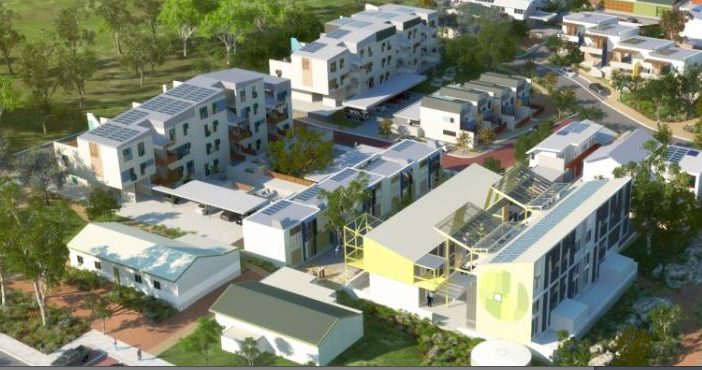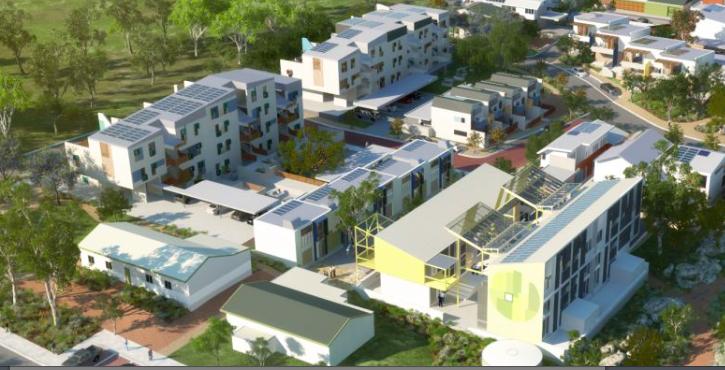

The Australian-made solar energy sharing platform first rolled out at the White Gum Valley housing project in Fremantle, Western Australia, has been extended to a new apartment complex at the residential estate.
Power Ledger, the Perth-based company behind the peer-to-peer trading platform, said on Friday that they would work with Yolk Property Group to apply the blockchain technology for solar energy trading between residents across Yolk’s Evermore apartment development.
The company claims this achievement as the “first apartment development in Australia for sale to the public” to use blockchain technology for solar power trading between residents in a strata-setting – although One Step Off The Grid is always sceptical about such claims, and notes they can be open to interpretation.
But certainly, Power Ledger has been a pioneer in the P2P energy sharing space in Australia, having launched its platform more broadly at the White Gum Valley housing project in December 2016.
As we explained here in August 2016, the company’s platform seeks to allow rooftop solar energy producers and consumers to trade their electricity directly, saving money, hassle and maximising the use of rooftop solar.
The technology works, like bitcoin, to identify the ownership of energy as it is generated and then to manage multiple trading agreements between consumers who buy excess solar direct from the original owner/producer, without the addition of market costs and commercial margins.
“It’s a software program that tracks the movement of electricity from point to point,” Power Ledger chair Jemma Green explained in an interview, at the time, with One Step Off The Grid. “It handles the financial transactions off the back of it as well.
“Presently, if you’ve got surplus solar electricity you sell it back for a low feed-in tariff and buy it back (from the grid) for a high rate. Using (Power Ledger), you can sell it to your neighbour at somewhere between the two” – less than the uniform tariff but more than you would get from selling it to their retailer, Green said.
“Effectively, we’re cutting out the middle-man to save consumers, and to maximise returns for producers,” she said.
The application of the technology at Evermore, a complex of 24 “highly sustainable” apartments, fitted not only with solar but with battery storage, is a new frontier – although with the same goal, of providing “a transactive layer” for residents to trade the solar energy between each other.
“We’re delighted to again work on projects like WGV that are changing the way we use energy and deliver a modern, decentralized and low-cost, low-carbon structure to residents,” Power Ledger Co-Founder and Managing Director David Martin said.
“Power Ledger is proud to be working with Yolk at Evermore and we look forward to the evolution of similar sustainable projects in Australia and across the globe.”
Elsewhere, Power Ledger has also worked with AGL in an ARENA-backed pilot to test P2P energy trading between households. And in WA, in a trial supported by the Australian Energy Market Operator, it has worked with utility Western Power to integrate distributed energy and water systems in the City of Fremantle.

Sophie is editor of One Step Off The Grid and editor of its sister site, Renew Economy. Sophie has been writing about clean energy for more than a decade.

